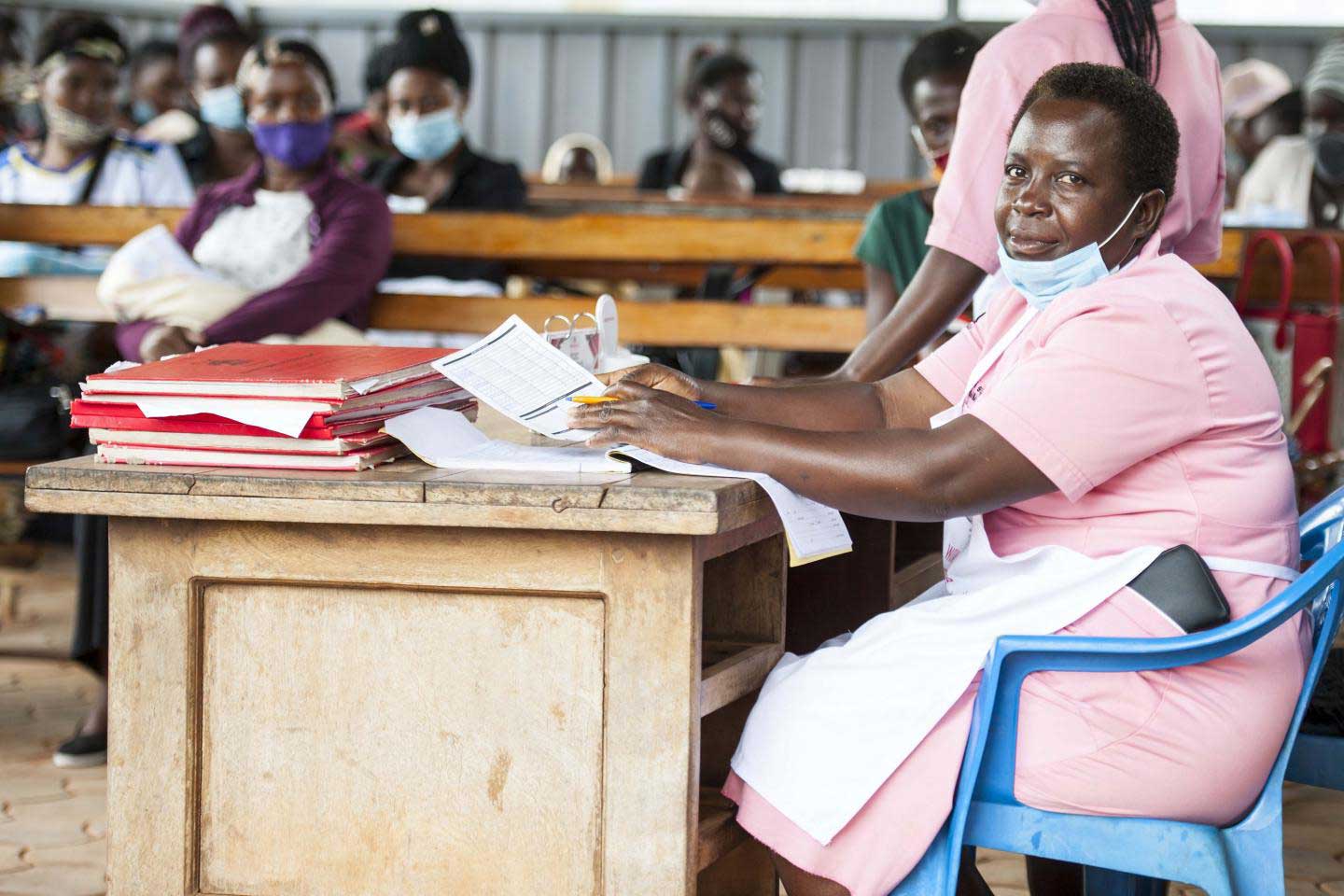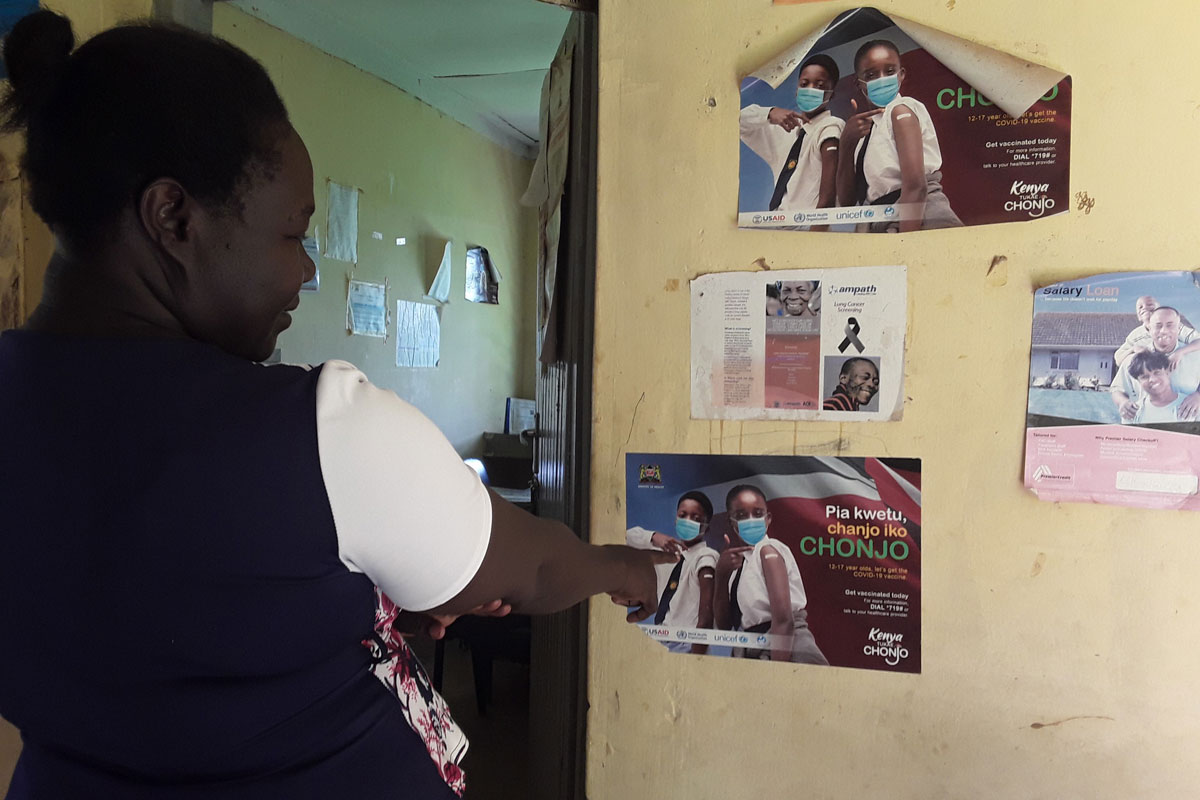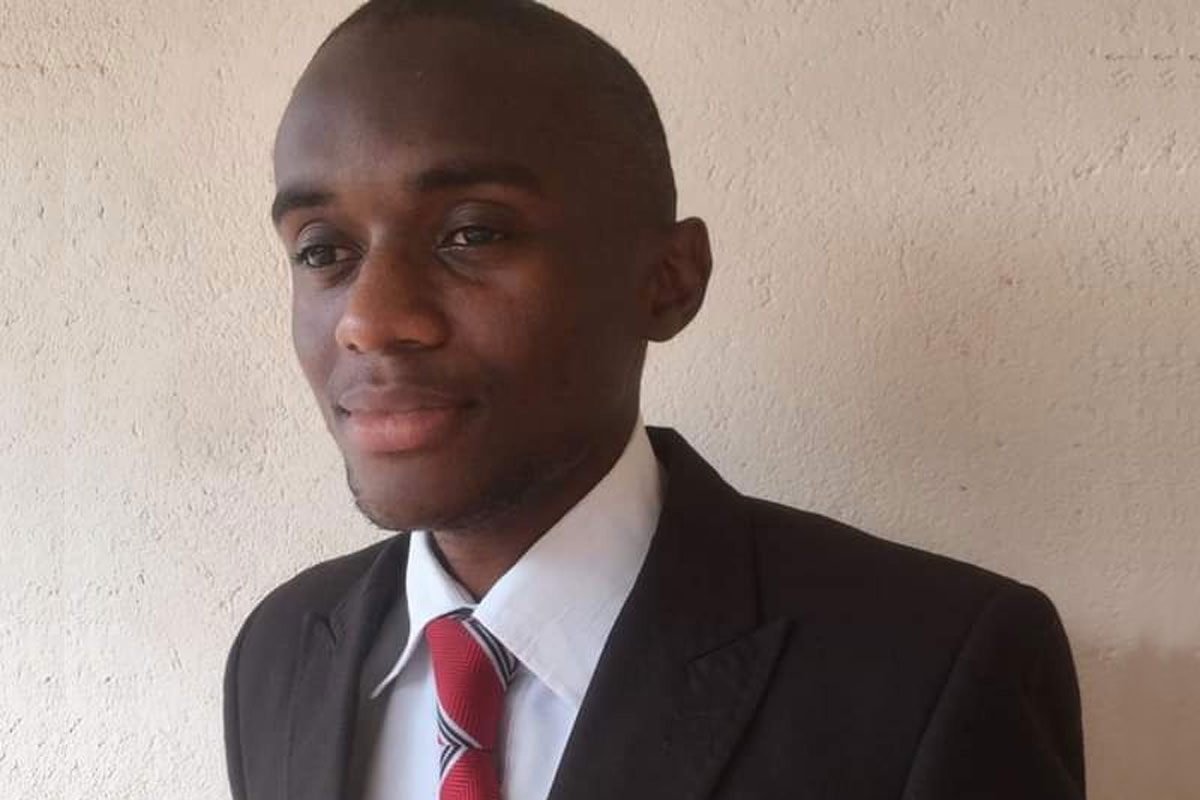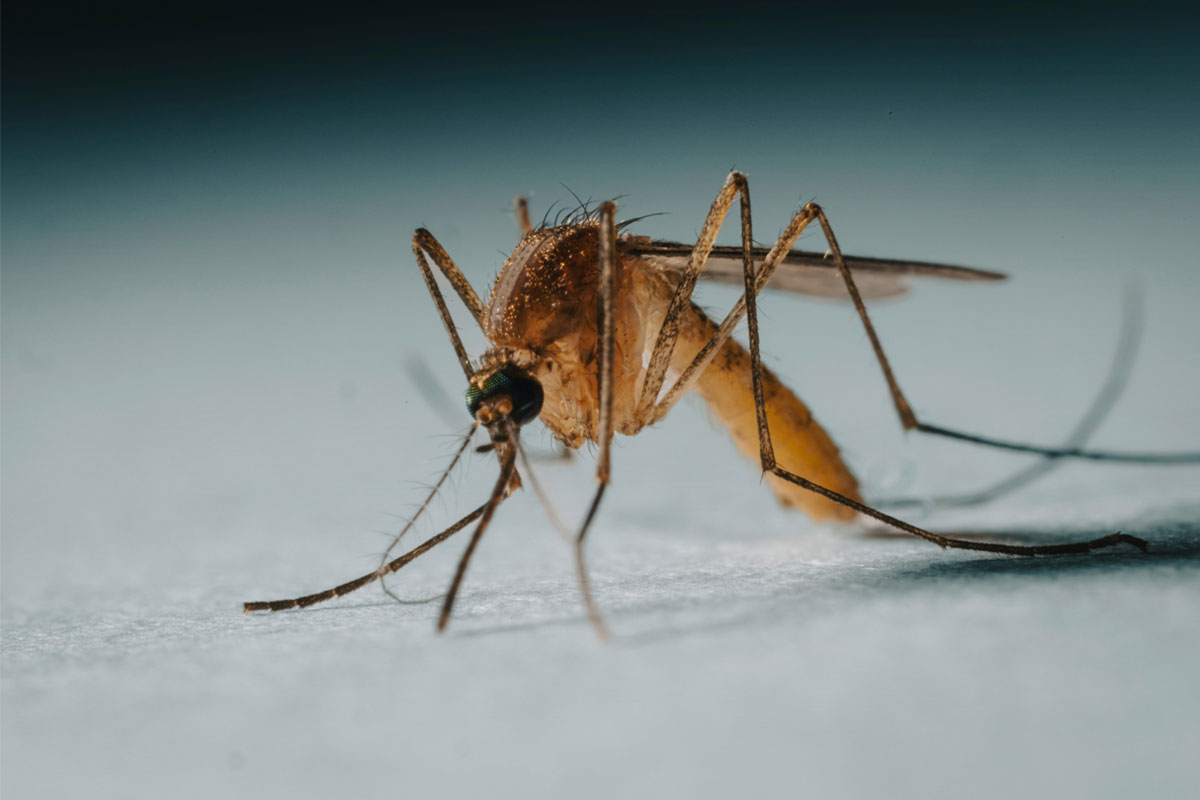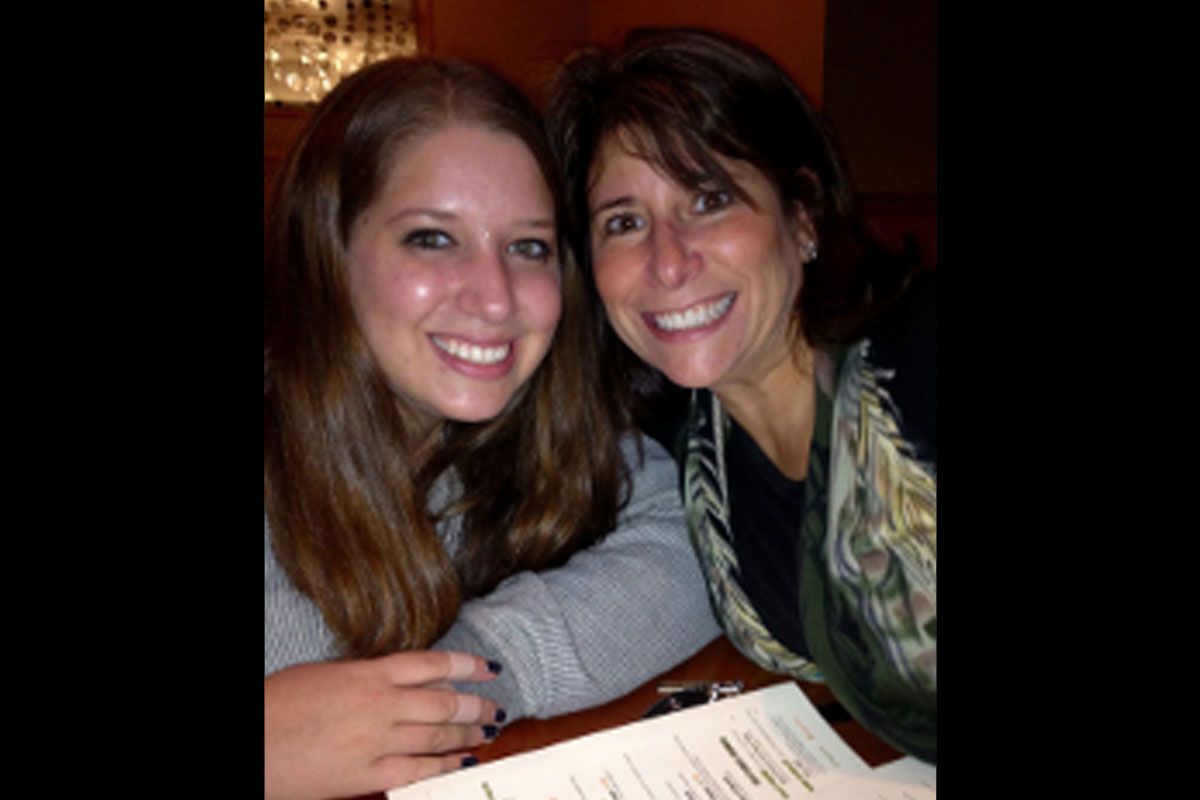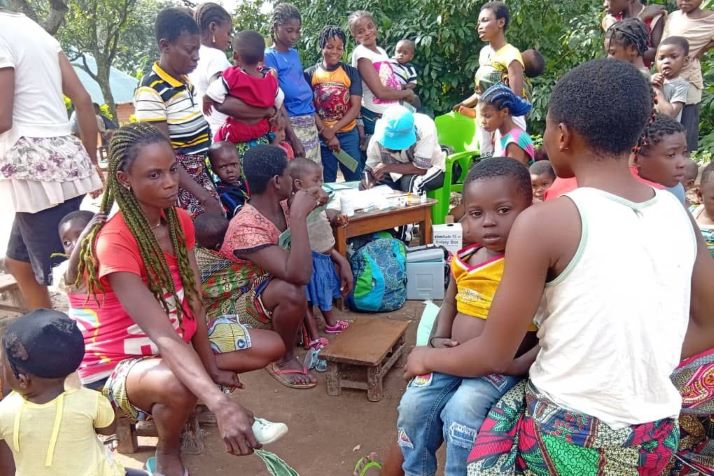Testimonies on the heightened COVID-19 vaccination among refugees
Voices of refugees, host community, health workers and experts speak about COVID-19 vaccination.
- 19 August 2022
- 6 min read
- by UNICEF Uganda
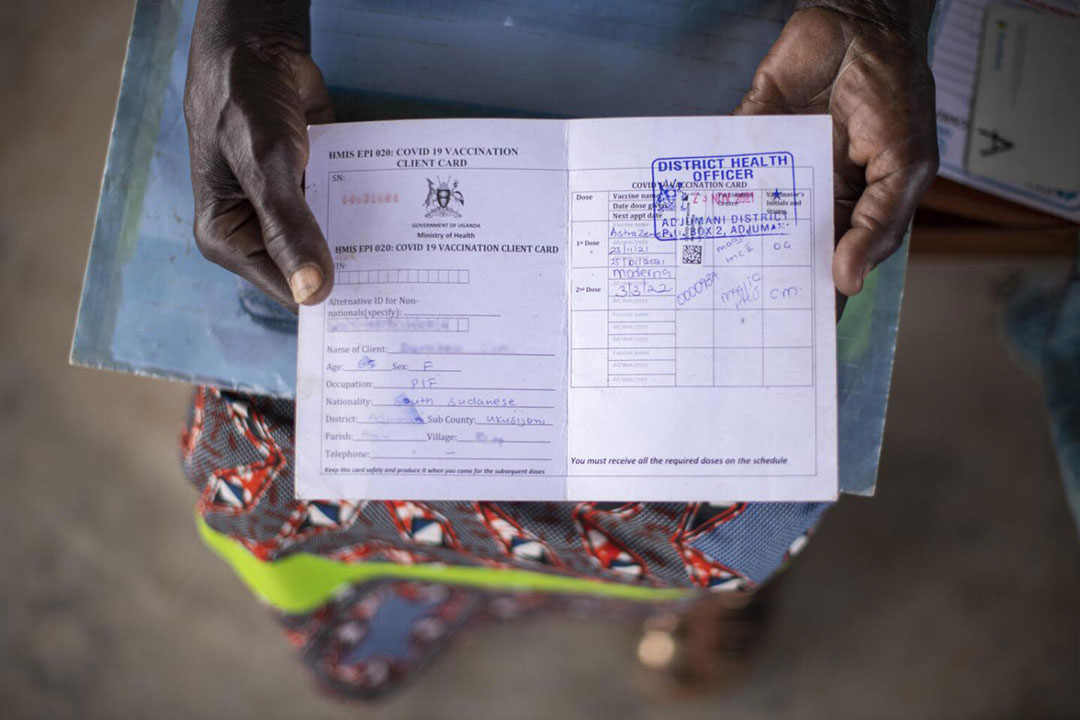
UNICEF recently received funding from the Swiss Government and European Commission to support Uganda's Ministry of Health to accelerate COVID-19 mass vaccination of refugees and host communities. On 13 June, 2022, UNICEF, UNHCR, Ministry of Health, district local government authorities and partners were in various refugee settlements conducting outreaches and mass vaccination exercises to ensure equitable vaccination reach of the refugee and host community population with the COVID-19 Vaccination ‘Leave no one behind’.
This is part of the global COVAX Humanitarian Buffer, a mechanism established within the COVAX Facility to act as a measure of ‘last resort’ to ensure access to COVID-19 vaccines for high-risk and vulnerable populations in humanitarian settings. The Humanitarian Buffer is only to be used where there are unavoidable gaps in coverage in national vaccination plans and micro-plans, despite advocacy efforts.
Below are testimonies from refugee children, health workers, community leaders, government officials on the exercise in the refugee settlements:
Robina and Yopa: Under 18 pupils of Luru Primary School in Palorinya Refugee Settlement
Robina Waju, 16, and Rose Yopa, 17, are pupils of Luru Primary School in Palorinya Refugee Settlement. Waju loves to study. Her favourite subject is English, but Yopa is more social and enjoys playing with her peers. When the schools were closed, Yopa felt isolated from her social circle. She first heard about COVID-19 vaccination from her teachers, who emphasized the need for vaccination to protect against coronavirus. Waju was inspired by her parents, who calmed her fears about fertility. The duo promised to implore all their friends to get vaccinated so they can play together without fear of severe infection that might force schools shut again.
“I was afraid that if I took the vaccine, I might not get pregnant in the future, but my parents assured me that I would be safe because they both had taken the jab and remained healthy. This motivated me to get the vaccine to protect myself and my friends,” Robina Waju.

Jilda Mazira, Head Girl, Good Samaria Primary School, Obongi District
Mazira is a 14-year-old Ugandan national born in Moyo District. She is the Head Girl of Good Samaria Primary School in Palorinya Refugee Settlement, where she lives with her aunt, a teacher at the school. Her ambition is to be a doctor. She loves to help the sick in poor communities. After receiving her Pfizer jab, she set out to encourage fellow students between 12-17 years to get vaccinated.
“As a leader, I must set an example for fellow pupils. It gives them trust and confidence in the vaccination process. I encourage the pupils to come to the vaccination posts with their parents who will consent on their behalf,” Jilda Mazira.

Lillian Aciro, Enrolled Nurse, Maaji III Health Centre II
The delivery of health services during the pandemic changed drastically. Most children missed their scheduled immunisation doses, thus affecting their resistance to preventable diseases.
“Medical Teams International trained me to administer COVID-19 vaccination in Maaji III Refugee Settlement and the nearby community. Before vaccinating a person, we brief them about the possible side effects and monitor them for a few days as part of our post-vaccination services. If someone experiences adverse side effects, then we admit them for further treatment,” Aciro said.
Have you read?

Gladys Pita, 19, Mother, Luru Village Zone II, Palorinya Refugee Settlement
“My pastor got COVID-19 and was taken to Arua Regional Referral Hospital, where he died. From that day, I vowed to do whatever it took to protect myself and my baby from this dangerous virus. I missed the first two vaccination phases because I had gone back to South Sudan to check on my family. I got the vaccine as soon as I returned to Uganda, but I continue to wash my hands and wear masks because the vaccine is not a cure,” Pita said.
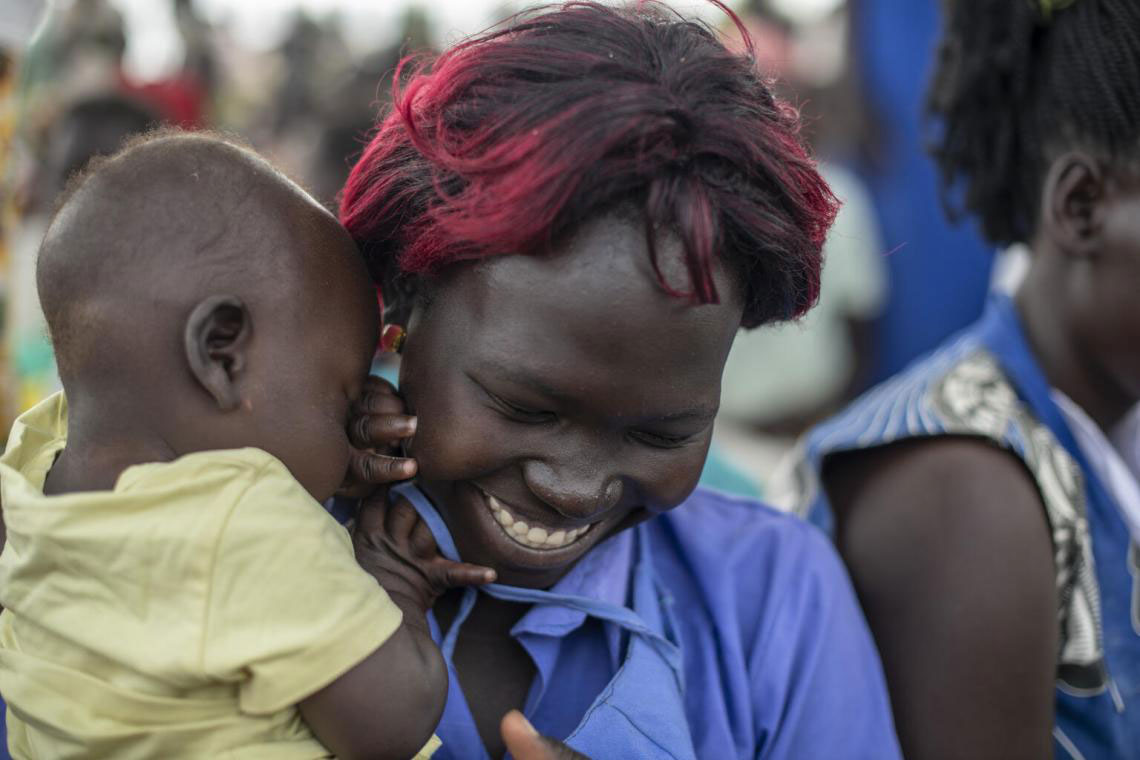
Nancy Kenyi Nyoka, 19, Mother of three, Worinya Tank 21, Palorinya Refugee Settlement
“I was afraid to get the vaccine because I was pregnant. The rumour was if a pregnant woman gets the vaccine, she would lose the baby. My baby, Harriet, is now seven months old. I got vaccinated to protect her so she can become an important person in future,” Nyoka said.

Emmanuel Yengi Luka, Village Health Team (VHT) Chairman, Palorinya Refugee Settlement
Armed with a megaphone, Luka moves door-to-door, Zone to Zone, explaining why COVID-19 vaccination is important. He is a household name, revered by fellow VHTs for his interpersonal skills and leadership abilities.
“My responsibility is ensuring everyone within my jurisdiction is vaccinated against COVID-19. I provide the right information and crosscheck with the settlement register to confirm if everyone has received a vaccine. If not, I visit the homes of those who have not yet received it to establish the reason. More than 90% of the households in my area have been vaccinated,” Emmanuel Yengi Luka.
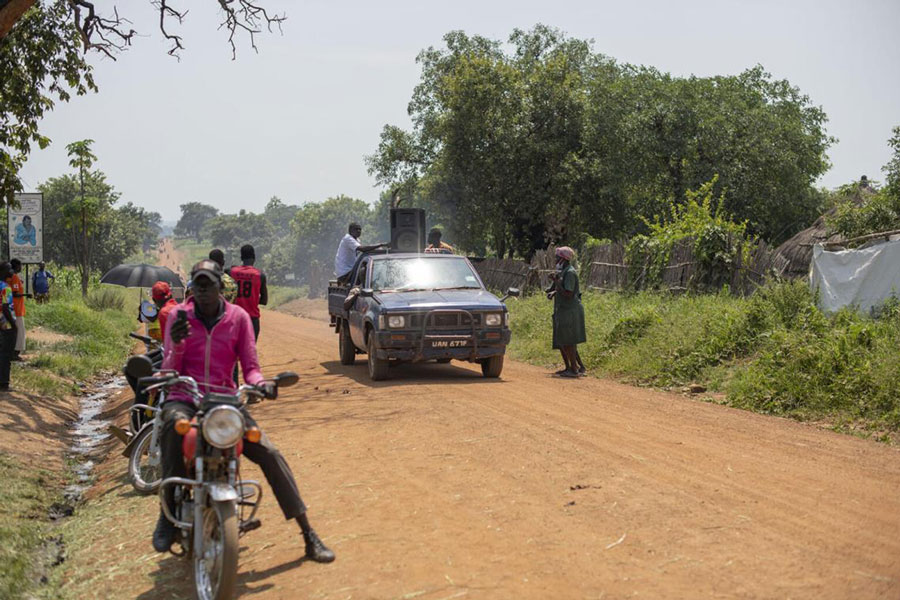
Stanley Karamira, Enrolled Nurse, Ofua Health Centre III, Adjumani district
“When we launched the vaccination exercise at Mirieyi Refugee Settlement, we had a turnout of over 100 people, almost ten times more than we get at the health centre. This uptake is attributed to the mobilisation campaigns that include radio talk shows featuring district leaders, church leaders and prominent members of the community and reduced distances to the vaccination point. We also have many posters in local languages plastered across the settlement in local languages.”

Ajak Reech Nyibol, a pregnant mother from Mirieyi Refugee Settlement in Adjumani District
While some pregnant mothers were hesitant to take the COVID-19 vaccine during the first two mass vaccination phases, Nyibol, 33 and eight months pregnant, received her shot of Johnson and Johnson on June 17, 2022, during a home visit. She is confident that the vaccine will neither affect her nor her child but wants to reduce the risk of contracting the virus when she goes to the hospital for delivery.
“I know the hospital ward will be full when I go to give birth, and without the vaccine, I am at a higher risk of getting the coronavirus, further putting my baby in danger. Our VHT told us that the vaccine is safe for pregnant women because she also took it when she was pregnant and gave birth to a healthy baby. That helped me overcome my fear,” Nyibol said.

Dr. Patrick Banura, Immunization Officer, UNICEF Uganda
“COVID-19 is still with us, and the number of positive cases in Uganda is rising. Effective vaccination that covers both refugee settlements and host communities is one of the ways we can ensure equitable immunisation service delivery and create hard immunity in the communities,” Dr. Patrick Banura.
Titus Jogo, Refugee Desk Officer, Adjumani District
“The people know how COVID-19 disrupted our livelihoods. They know we can’t risk going back to lockdowns; we can’t afford to close schools again. The problem has been the myths claiming that vaccines cause impotence and infertility. We are countering these falsehoods with correct information, and already, we see a good reaction from the communities,” Titus Jogo.
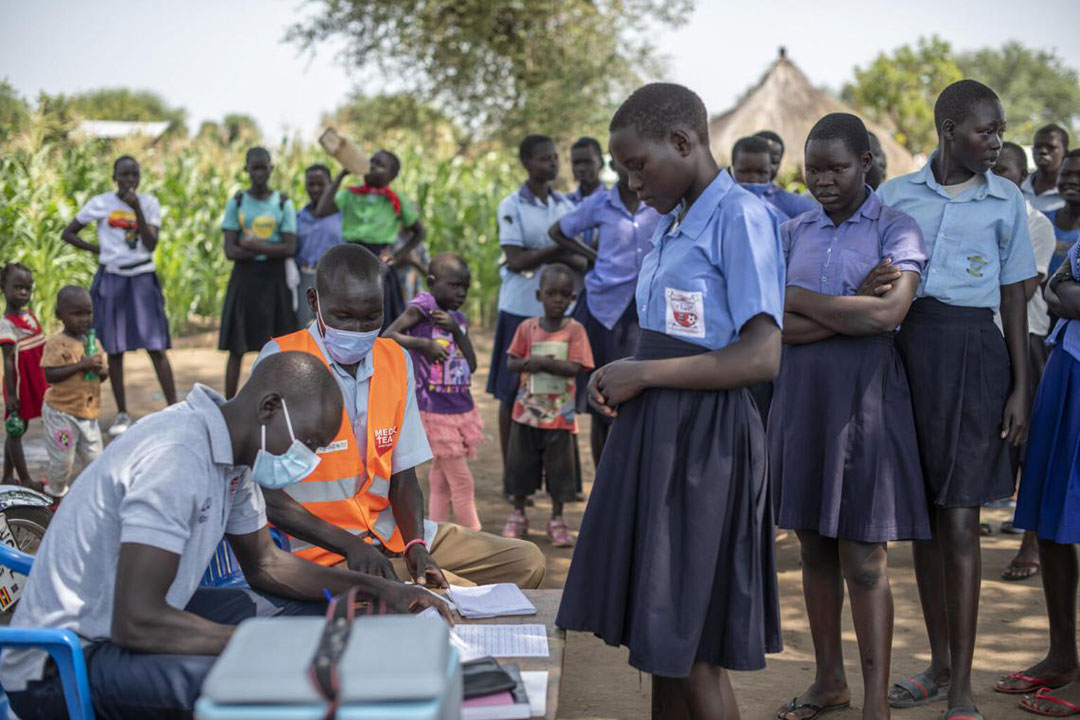
Original article

This article was first published by UNICEF.

